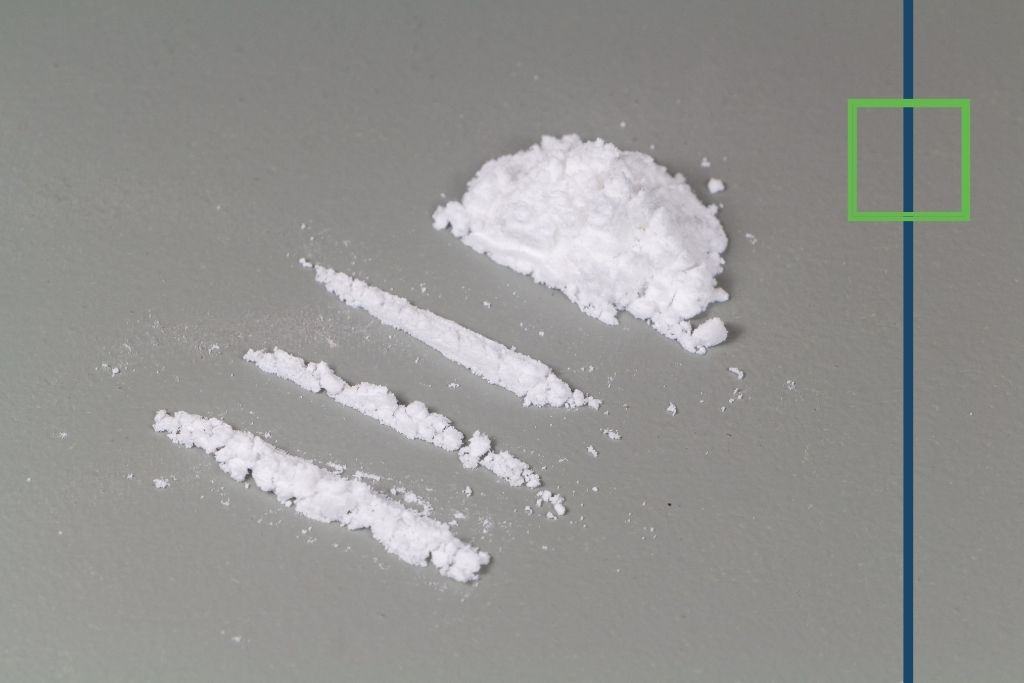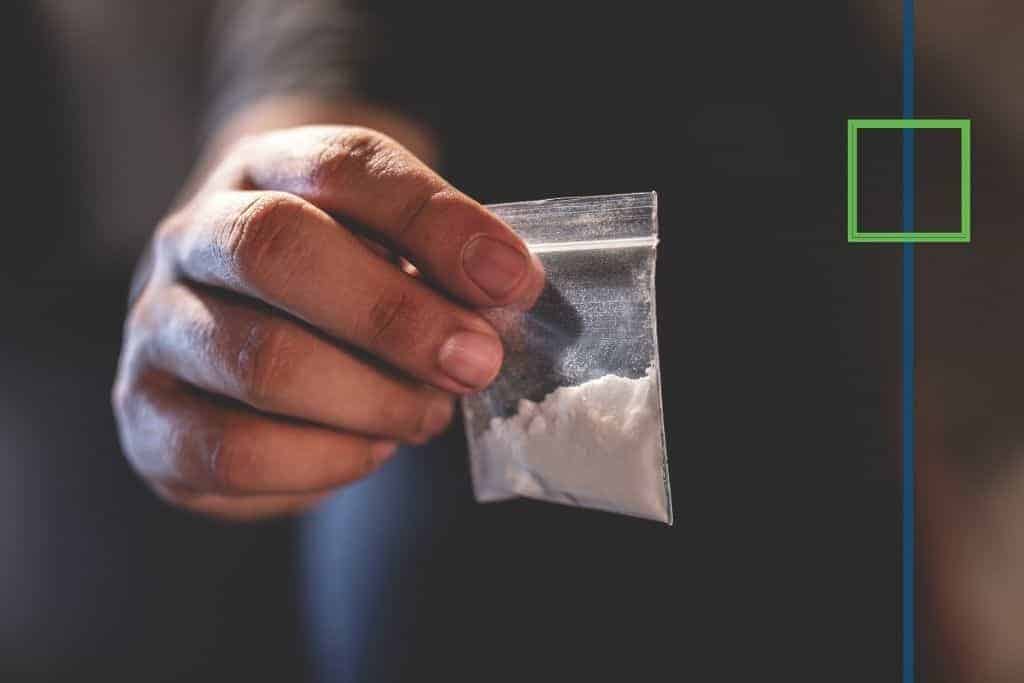Is Cocaine A Blood Thinner? Cocaine Effects
For a short time, cocaine has stimulating effects on the body. It causes a naturally occurring neurotransmitter called dopamine to increase its concentration in the brain. This causes feelings of pleasure and satisfaction. Cocaine causes your dopamine levels to rise to cause the user to feel euphoric.
Cocaine prevents dopamine, and other neurotransmitters norepinephrine and serotonin, from being taken up into the nerve cells. This allows large amounts of neurotransmitters to accumulate and stimulate the surrounding nerve cells. This heightens the pleasurable sense of euphoria. Cocaine side effects can also minimize your desire for sleep and food. Some people report that cocaine helps them think and perform tasks more quickly. Many users begin to crave the feelings that cocaine creates.
Frequent abuse of cocaine can cause you to develop a higher tolerance to the drug. A high tolerance means it takes more of the drug for you to feel its effects. This may lead to using greater amounts of it, which can impact your mental and physical health.

Psychological cocaine side Effects include:
- Paranoia
- Panic
- Hallucinations
- Aggression
- Irritability
- Anxiety
- Depression
- Impaired judgment
- Repetitive or abnormal behaviors
Physical cocaine side Effects include:
- Unhealthy weight loss
- Increased heart rate
- Nausea
- Abdominal pain
- Headaches
- Chest pain
- Heart arrhythmia
- Heart attack
- Seizure
- Stroke
Cocaine side effects are also associated with medical conditions that include:
- Respiratory diseases
- Weakened immune system
- Hepatitis
- Gangrene of the bowels
Get Help. Get Better. Get Your Life Back.
Searching for Accredited Drug and Alcohol Rehab Centers Near You?
Even if you have failed previously and relapsed, or are in the middle of a difficult crisis, we stand ready to support you. Our trusted behavioral health specialists will not give up on you. When you feel ready or just want someone to speak to about therapy alternatives to change your life call us. Even if we cannot assist you, we will lead you to wherever you can get support. There is no obligation. Call our hotline today.
(844) 597-1011Short-term effects of cocaine
Addicted users who stop using cocaine will undergo an initial crash, known as withdrawal. Withdrawal can be intense and difficult due to cravings and uncomfortable side effects. Effects of cocaine withdrawal include:
- Fatigue
- Hostility
- Paranoia
- Anxiety
- Agitation
- Sleep disturbances
- Depression
Withdrawal from cocaine can cause intense discomfort. And this can cause a strong desire to use the drug again. Even when withdrawal symptoms have subsided, sudden cravings are common. Support systems such as friends, family, treatment facilities, and other people recovering from addiction, can help you push through this phase.
Other common, short-term cocaine side effects include:
- Decreased appetite
- A temporary feeling of intense happiness or pleasure
- A feeling of “jitters” or restlessness
- Irritability
Long-term effects of cocaine
Cocaine can have long-term side effects, too, especially after prolonged, habitual use. Long-term ways cocaine can affect the brain include:
- Headaches
- Extreme weight loss
- Loss of smell/olfactory function
- Mood swings
- Movement Disorders, including Parkinson’s disease
- Severe paranoia
- Auditory hallucinations
- Irregular heartbeat
- Death by overdose
- Seizures
Most short-term cocaine side effects wear off within a day or two. But long-term side effects can be permanent. Sometimes, the long-term side effects of cocaine use are a sign of brain damage.
Physicians can diagnose cocaine addiction. If you reach out to your doctor about your cocaine use, they will start by asking you questions about your lifestyle, habits, usage, and dosage. It’s important to be straightforward and honest so you can get the right treatment.
Sometimes a health event, such as a seizure or stroke, will prompt a doctor to bring up the possibility of cocaine addiction to you if you also have other symptoms. Your doctor may use a drug test to confirm cocaine use. A urine drug test may only test positive for cocaine for about 4 days after last use. But the longer you’ve been using cocaine, the more it can accumulate in your body, and the longer it takes to metabolize.

Get Your Life Back
Find Hope & Recovery. Get Safe Comfortable Detox, Addiction Rehab & Dual Diagnosis High-Quality Care.
Hotline(844) 597-1011Is Cocaine A Blood Thinner? What is High Blood Pressure?
Blood pressure is recorded with 2 numbers. The systolic pressure (higher number) is the force at which your heart pumps blood around your body. The diastolic pressure (lower number) is the resistance to the blood flow in the blood vessels.
They’re both measured in millimeters of mercury (mmHg).
As a general guide:
- High blood pressure is considered to be 140/90mmHg or higher (or 150/90mmHg or higher if you’re over the age of 80)
- Ideal blood pressure is usually considered to be between 90/60mmHg and 120/80mmHg
Blood pressure readings between 120/80mmHg and 140/90mmHg could mean you’re at risk of developing high blood pressure if you do not take steps to keep your blood pressure under control. Everyone’s blood pressure will be slightly different. What’s considered low or high for you may be normal for someone else.

Cocaine And Blood Pressure
Is Cocaine A Blood Thinner? According to a 2019 study in the International Journal of Molecular Sciences, cocaine activates the body’s nervous system, which is the system of connections between the brain and the body’s organs.
According to the study, cocaine stimulates hormones and chemical messengers in the brain that respond to stress and pleasure — without then gradually returning those chemicals to their normal state. One of these chemicals, called norepinephrine, is both a hormone and a messenger that affects heart rate and blood pressure, according to the Endocrine Society.
This can result in dramatic increases in heart rate and blood pressure, which can result in heart attacks. According to the International Journal of Molecular Sciences study, the immediate effects of cocaine on the heart include:
- Elevated blood pressure
- Higher heart rate
- Increased body temperature
- Constricted blood vessels
- Coronary spasms, which are a tightening of the heart’s muscles
Cocaine Effect on Blood Arteries
Is Cocaine A Blood Thinner? Recreational cocaine users have been found to have harder arteries, thicker heart muscle walls, higher blood pressure, and up to a 35 higher risk of a hardened aorta, compared with people who have never used the drug.
Cocaine Effects on Blood Vessels
Is Cocaine A Blood Thinner? Some, but not all, studies involving cocaine users suggest that cocaine may increase the risk of coronary artery disease (CAD). This disease causes blood vessels to narrow as a result of the buildup of plaque. CAD is a risk factor for heart attack and stroke, as well as sudden death.
First-class Facilities & Amenities
World-class High-Quality Addiction & Mental Health Rehabilitation Treatment
Rehab Centers TourRenowned Addiction Centers. Serene Private Facilities. Inpatient rehab programs vary.
Addiction Helpline(844) 597-1011Proven recovery success experience, backed by a Team w/ History of:
15+
Years of Unified Experience
100s
5-Star Reviews Across Our Centers
10K
Recovery Success Stories Across Our Network
- Low Patient to Therapist Ratio
- Onsite Medical Detox Center
- Comprehensive Dual-Diagnosis Treatment
- Complimentary Family & Alumni Programs
- Coaching, Recovery & Personal Development Events
Link Between Cocaine and Blood Pressure Medication
Is Cocaine A Blood Thinner? Cocaine makes beta-blockers less effective at treating blood pressure or heart rate issues because it has the opposite effect as beta-blockers.
Cocaine makes beta-blockers less effective at treating blood pressure or heart rate issues because it has the opposite effect as beta-blockers. People prescribed beta-blockers for cardiovascular issues already have an increased risk of experiencing a cardiovascular event like a heart attack or blood clot, and cocaine heightens the risk. Using cocaine defeats the heart-protective benefits of beta-blockers.
Some people may think that taking a beta-blocker will allow them to manage the symptoms of cocaine abuse or come down from a cocaine high. However, doing so is very dangerous and should not be done. There are significant risks associated with combining beta-blockers and cocaine.
When someone mixes cocaine and beta-blockers, the combination can lead to effects including:
- Worsening constriction of blood vessels (vasospasm) in the heart. This effect leads to lower blood flow and oxygen, increasing the risk of tissue damage, heart attack, or death. Vasospasm may be silent (no noticeable side effects) or cause chest pain.
- A paradoxical increase in blood pressure adds stress to the cardiovascular system and can be dangerous. High blood pressure symptoms are usually silent, but in extreme cases, they may result in difficulty breathing, chest pain, confusion, or a severe headache.
If you are prescribed beta-blockers for a cardiovascular issue, remember that cocaine can damage the cardiovascular system. Beta-blockers are not effective at protecting the heart when cocaine is used.
If you use cocaine and are considering taking a beta-blocker on your own to counter cocaine symptoms, know that the combination causes a paradoxical increase in blood pressure and further constriction of blood vessels in the heart. This mixture is a potentially dangerous combination. If you experience chest pain while using cocaine, do not self-treat but seek medical attention immediately.
Historically, the use of propranolol, a beta-blocker, was the first-line treatment when a person showed up at the hospital with cocaine-related cardiovascular issues. However, this practice was abandoned due to increased death rates noted in animal studies when cocaine and propranolol are mixed. Due to this finding, many healthcare providers began moving away from beta-blocker use in cocaine toxicity, though it remains a controversial subject.
World-class, Accredited, 5-Star Reviewed, Effective Addiction & Mental Health Programs. Complete Behavioral Health Inpatient Rehab, Detox plus Co-occuring Disorders Therapy.
CALL(844) 597-1011End the Addiction Pain. End the Emotional Rollercoaster. Get Your Life Back. Start Drug, Alcohol & Dual Diagnosis Mental Health Treatment Now. Get Free No-obligation Guidance by Substance Abuse Specialists Who Understand Addiction & Mental Health Recovery & Know How to Help.
Cocaine Addiction Treatment Near Me
The treatment for Cocaine Addiction must address the context of polydrug users to be effective. As stated by The National Institute on Drug Abuse in the piece ‘Cocaine Research Report. How is cocaine addiction treated?’, “In 2013, cocaine accounted for almost 6 percent of all admissions to drug abuse treatment programs. The majority of individuals (68 percent in 2013) who seek treatment for cocaine use smoke crack and are likely to be polydrug users, meaning they use more than one substance.
Those who provide treatment for cocaine use should recognize that drug addiction is a complex disease involving changes in the brain as well as a wide range of social, familial, and other environmental factors; therefore, treatment of Cocaine Addiction must address this broad context as well as any other co-occurring mental disorders that require additional behavioral or pharmacological interventions”.
Treatment for Cocaine Addiction is focused on behavioral interventions that can be used to manage this substance dependence effectively. There are no medicines that work as substitutes for powder cocaine, crack cocaine and other stimulants of this kind. However, currently, there are some pharmacological advances.

Pharmacological Approaches
Currently, there is no US. Approved medications, drug administration, or a specific diet to treat Cocaine Addiction. However, researchers are exploring a variety of neurobiological targets.
According to The National Institute on Drug Abuse, several medications marketed for other diseases show promise in reducing cocaine use within controlled clinical trials. Among these, disulfiram, which is used to treat alcoholism, has shown the most promise. Scientists do not yet know exactly how disulfiram reduces cocaine use, though its effects may be related to its ability to inhibit an enzyme that converts dopamine to norepinephrine.
However, disulfiram does not work for everyone. Pharmacogenetic studies are revealing variants in the gene that encodes the DBH enzyme and seems to influence disulfiram’s effectiveness in reducing cocaine use. Knowing a patient’s DBH genotype could help predict whether disulfiram would be an effective pharmacotherapy for cocaine dependence in that person.
Cocaine Addiction Vaccine
Researchers have developed and conducted early tests on a cocaine vaccine that could help reduce the risk of relapse. The vaccine stimulates the immune system to create cocaine-specific antibodies that bind to cocaine, preventing it from getting into the brain. In addition to showing the vaccine’s safety, a clinical trial found that patients who attained high antibody levels significantly reduced cocaine use. However, only 38 percent of the vaccinated subjects attained sufficient antibody levels for only 2 months.
Researchers are working to improve the cocaine vaccine by enhancing the strength of binding to cocaine and its ability to elicit antibodies. New vaccine technologies, including gene transfer to boost the specificity and level of antibodies produced or enhance the metabolism of cocaine, may also improve the effectiveness of this treatment. A pharmacogenetics study with a small number of patients suggests that individuals with a particular genotype respond well to the cocaine vaccine—an intriguing finding that requires more research.
Behavioral Interventions
Many behavioral treatments for Cocaine Addiction have proven to be effective in both residential and outpatient settings. Indeed, behavioral therapies are often the only available and effective treatments for many drug problems, including stimulant addictions. However, the integration of behavioral and pharmacological treatments may ultimately prove to be the most effective approach.
- Contingency Management: One form of behavioral therapy that is showing positive results in people with cocaine use disorders is Contingency Management (CM), also called motivational incentives. Programs use a voucher or prize-based system that rewards patients who abstain from cocaine and other drugs. Based on drug-free urine tests, the patients earn points, or chips, which can be exchanged for items that encourage healthy living, such as a gym membership, movie tickets, or dinner at a local restaurant. CM may be particularly useful for helping patients achieve initial abstinence from cocaine and stay in treatment.
- Cognitive-behavioral therapy (CBT): is an effective approach for preventing relapse. This approach helps patients develop critical skills that support long-term abstinence—including the ability to recognize the situations in which they are most likely to use cocaine, avoid these situations, and cope more effectively with a range of problems associated with drug use. This therapy can also be used in conjunction with other treatments, thereby maximizing the benefits of both.
- Therapeutic communities (TCs): Drug-free residences in which people in recovery from substance use disorders help each other to understand and change their behaviors—can be an effective treatment for people who use drugs, including cocaine. TCS may require a 6- to 12-month stay and can include onsite vocational rehabilitation and other supportive services that focus on successful re-integration of the individual into society. TCS can also provide support in other important areas—improving the legal, employment, and mental health outcomes.
Reclaim Your Life From Cocaine Addiction
Cocaine Addiction is a serious disease that should not be taken lightly. We Level Up Treatment Center can provide you, or someone you love, the tools to recover from cocaine addiction with professional and safe treatment. Feel free to call us to speak with one of our counselors. We can inform you about this condition by giving you relevant information. Our specialists know what you are going through. Please know that each call is private and confidential.
Experience Transformative Recovery at We Level Up Treatment Centers.
See our authentic success stories. Get inspired. Get the help you deserve.
Start a New Life
Begin with a free call to an addiction & behavioral health treatment advisor. Learn more about our dual-diagnosis programs. The We Level Up Treatment Center Network delivers recovery programs that vary by each treatment facility. Call to learn more.
- Personalized Care
- Caring Accountable Staff
- World-class Amenities
- Licensed & Accredited
- Renowned w/ 100s 5-Star Reviews
We’ll Call You
Sources
[1] Cheng, Yu-Ching; et al. “Cocaine use and risk of ischemic stroke in young adults.” Stroke, March 10, 2016.
[2] Hobbs, William E.; et al. “Cocaine and specific cocaine metabolites induce von Willebrand Factor release from endothelial cells in a tissue-specific manner.” Arteriosclerosis, Thrombosis, and Vascular Biology, March 28, 2013.
[3] Khan, Aysha N.; et al. “Cocaine-induced splenic rupture.” Journal of Surgical Case Reports, March 2017.
[4] Kim, Sung Tae; Park, Taehwan. “Acute and Chronic Effects of Cocaine on Cardiovascular Health.” International Journal of Molecular Sciences, January 29, 2019.
[5] Martin-Schild, Sheryl; et al. “Intracerebral hemorrhage in cocaine users.” Stroke, April 2010.


